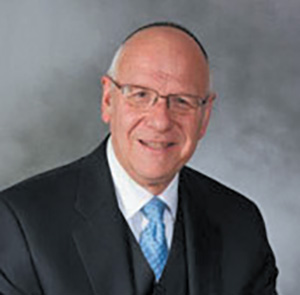
Parshat Ekev
In this second of the seven haftarot of consolation that we read this Shabbat, the navi Yeshayahu addresses an “unconvinced” population that is having difficulty believing the prophet’s words of consolation and comfort. After suffering the destruction and devastation of their city and Temple, after experiencing the loss of thousands of souls and after being driven into exile, the nation understandably believes that Hashem no longer cares for them. “Tziyon says: ‘Hashem has forgotten and abandoned me’”; such is what God tells the prophet. The message of the haftarah, therefore, is God’s response to these doubts, a response delivered to the people by Yeshayahu. That Divine rejoinder is made up of promises and assurances; the first part of the prophecy is replete with promises of the glorious future while the latter half of the haftarah contains assurances that Hashem has not, and will not, abandon His children.
Starting with the promise of kibbutz galuyot, the ingathering of exiled communities, Yeshayahu describes the overwhelming population explosion that will lead to complaints of a lack of housing in Jerusalem to accommodate the number of returnees (imagine that!). And we will begin to wonder “Mi yalad li eileh?—Who gave birth to all of these?” as we remain astonished at that growth, since we had been so few and so small in number. Added to our astonishment would be the fact that it will be the nations of the world, the very people who oppressed and tormented us over the centuries, who will help reestablish our presence in Yerushalayim.
The assurances that go hand in hand with the promises continue the pattern that was set in last week’s haftarah of reminding the people that Hashem’s great powers would guarantee the fruition of these promises. Admitting that, at times, even the most unexpected things might occur in life, Yeshayahu asserts that Hashem’s word is sacrosanct and will always be realized. And as far as the people’s fear that God had permanently abandoned them, the prophet explains that it was only their sins that distanced God from them, and their repentance would, therefore, repair the rift they themselves had caused.
Closing his message by reminding the nation of the loving relationship God had with their ancestors, Yeshayahu declares that Hashem will comfort Tziyon and have her wilderness blossom like the Garden of Eden, “Sasson v’simcha yimatzei va”; once again, joy and gladness would be found there mingling with voices of thanksgiving and praise.
Comforting words for a mournful people. Truthful words for we who now live to see their fruition.
By Rabbi Neil N. Winkler
Rabbi Neil Winkler is the Rabbi Emeritus of the Young Israel of Fort Lee and now lives in Israel.









